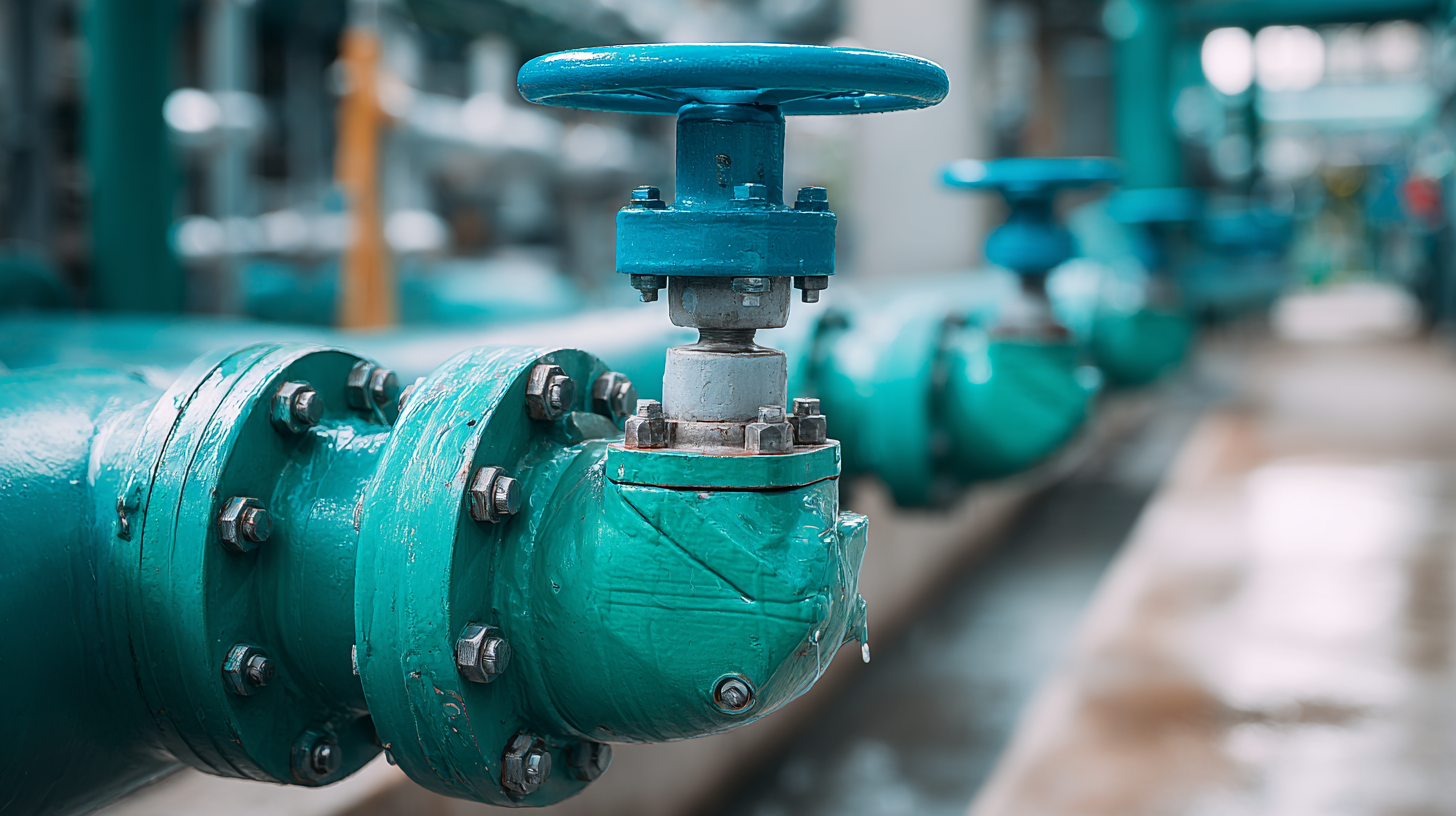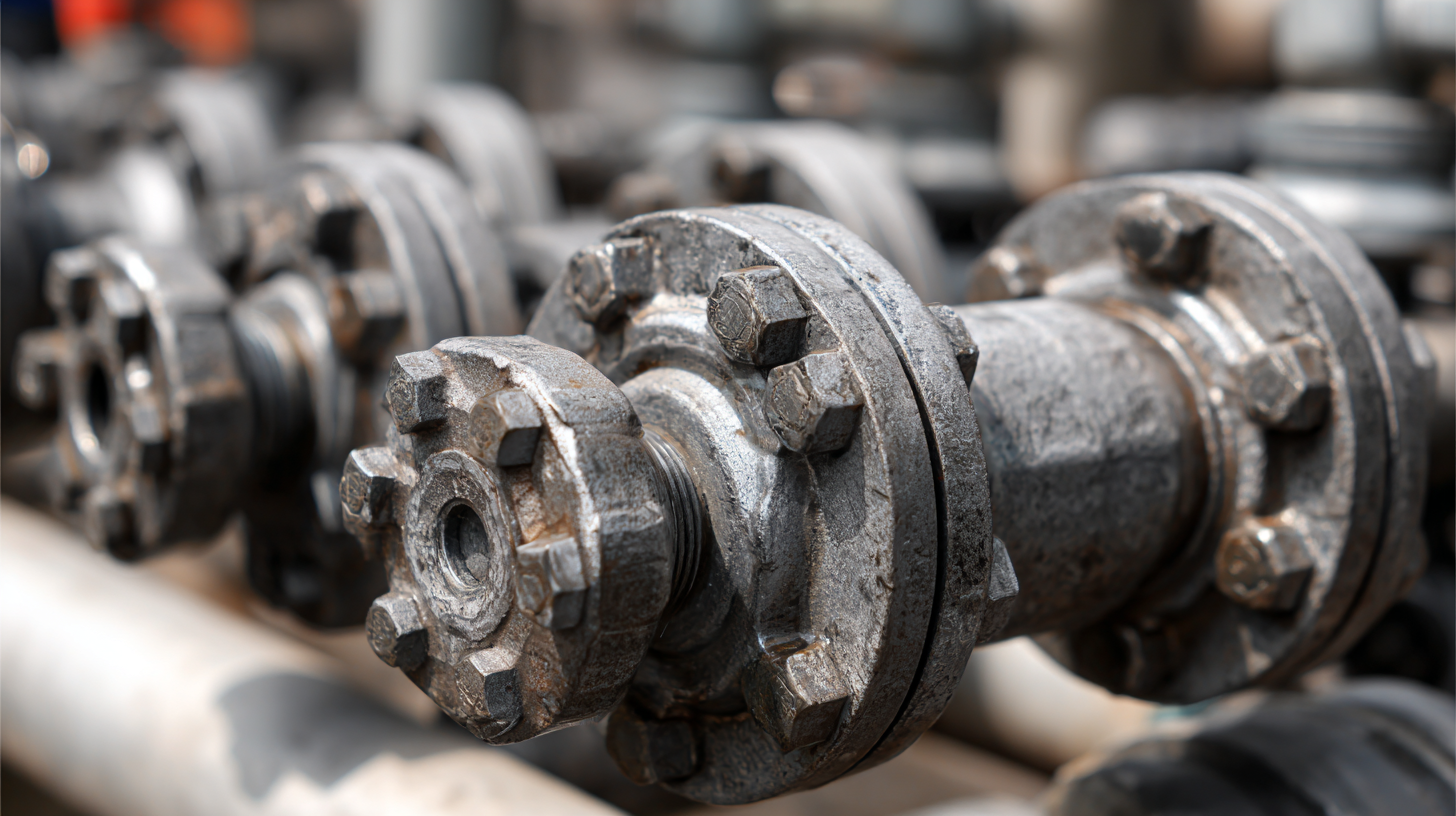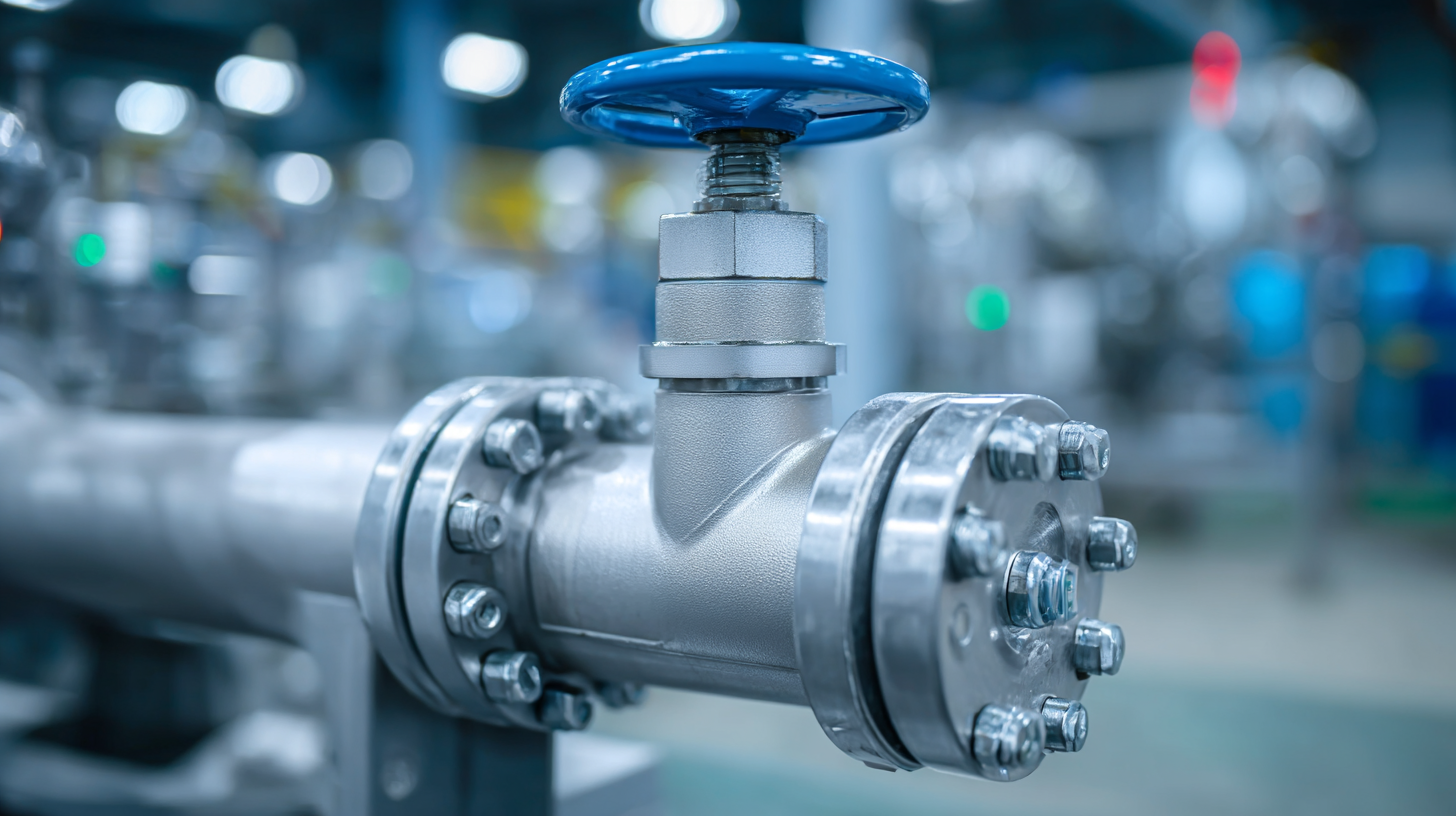Ultimate Checklist for Sourcing the Best Water Check Valve for Your Industrial Needs
In the rapidly evolving industrial landscape of 2025, understanding the nuances of sourcing the best water check valve has become crucial for ensuring operational efficiency and reliability. Water check valves play a vital role in preventing backflow and maintaining the integrity of water systems, which is essential in various sectors, from manufacturing to agriculture. As industry standards become more stringent and new technologies emerge, it is imperative for businesses to stay informed about the latest advancements and comparison metrics in the market. This ultimate checklist not only aims to guide you through the essential factors to consider when selecting a water check valve but also highlights the trends and innovations that are shaping the future of this critical component. By following this comprehensive guide, you will be empowered to make informed decisions that align with your specific industrial needs.
Identifying Key Industrial Applications for Water Check Valves in 2025
When selecting the best water check valves for industrial applications in 2025, it is imperative to identify the specific needs of your industry. Various sectors, including manufacturing, water treatment, and agriculture, require specialized mechanisms to ensure efficient water flow and prevent backflow. Understanding these applications beforehand will help in sourcing the most suitable valve type for your operational requirements.
**Tips:** One crucial factor to consider is the valve material. The corrosive nature of certain industrial environments necessitates durable materials like stainless steel or PVC to endure wear and tear. Furthermore, assessing the flow rate and pressure specifications is vital to ensure compatibility with your system—this ensures optimal performance and longevity.
Emphasizing your operational goals can further refine your search. For instance, if your application demands frequent maintenance and servicing, opt for valves that offer easy installation and accessibility. Reviewing manufacturer recommendations and industry certifications can aid in selecting reliable products that meet regulatory standards and your quality criteria.
Ultimate Checklist for Sourcing the Best Water Check Valve for Your Industrial Needs
| Application |
Valve Type |
Material |
Pressure Rating (PSI) |
Temperature Range (°F) |
Installation Orientation |
| Water Treatment Plant |
Swing Check Valve |
Stainless Steel |
150 |
32 to 140 |
Vertical |
| Food & Beverage Processing |
Spring Check Valve |
PVC |
100 |
40 to 120 |
Horizontal |
| Irrigation Systems |
Lift Check Valve |
Brass |
200 |
25 to 130 |
Any |
| Power Generation |
Dual Plate Check Valve |
Cast Iron |
250 |
50 to 200 |
Vertical |
| HVAC Systems |
Flapper Check Valve |
Aluminum |
150 |
30 to 150 |
Any |
Essential Factors to Consider When Selecting a Water Check Valve
When selecting a water check valve for industrial applications, several essential factors come into play that can significantly impact performance and longevity. Firstly, it is crucial to assess the media properties, including temperature, pressure, and the type of fluid being managed. Different valves are designed for specific pressures and temperature ranges; hence, understanding these parameters can prevent potential failures and downtime.
Another vital consideration is the size and flow rate of the system. Ensuring the valve matches the pipeline dimensions is essential for maintaining efficiency. Oversized or undersized valves can lead to turbulence and impede flow, affecting overall system reliability. Additionally, the material of the valve should be compatible with the fluid to prevent corrosion and ensure durability, which is particularly important in harsh industrial environments. By prioritizing these factors, businesses can select the right water check valve that meets their operational needs effectively.
Innovations in Water Check Valve Technology for Maximum Efficiency
Innovations in water check valve technology have significantly enhanced efficiency in industrial applications. The latest advancements focus on reducing energy consumption, improving reliability, and extending service life. For instance, a recent report by the International Water Association noted that modern check valves can reduce water loss by up to 20%, translating to substantial savings for industries that rely heavily on water resources. The integration of smart technology, such as IoT-enabled check valves, allows for real-time monitoring and predictive maintenance, further optimizing performance and minimizing downtime.
When sourcing the best water check valve, it is crucial to consider materials that withstand harsh conditions. Valves made of corrosion-resistant alloys or composite materials can enhance durability and reduce maintenance costs. Additionally, look for designs that facilitate easy installation and provide a tight seal, ensuring minimal leakage.
Tip: Before making a purchase, evaluate the manufacturer’s performance data and warranty offerings. A robust warranty can serve as a testament to the product's reliability and performance, indicating a commitment to quality. Always consult with industry experts to identify the specifications that best meet your operational needs and to stay informed about the latest technological innovations.

Comparative Analysis of Different Types of Water Check Valves
When selecting a water check valve for industrial applications, understanding the comparative advantages of different types is crucial. Key categories include swing check valves, which utilize a hinged disc that swings with the flow of water, and lift check valves, which have a disc that moves upward as flow increases. According to a report by the American Water Works Association, swing check valves are particularly effective in larger pipelines due to their ability to handle higher flow rates, while lift check valves are favored in systems where space constraints exist.
Tip: When evaluating valves, consider not only the flow rate requirements but also the materials used in valve construction. Using valves made from corrosion-resistant materials, such as stainless steel or PVC, can enhance durability and longevity in harsh environments.
Furthermore, dual plate check valves have gained popularity, especially in high-pressure applications, thanks to their compact design and lower pressure drop. Research by the Hydraulic Institute shows that these valves can reduce energy costs significantly due to their efficiency compared to traditional check valves.
Tip: Ensure that the selected valve matches your system’s pressure ratings and installation conditions to avoid operational issues down the line.
Future Trends in Water Check Valve Manufacturing and Sustainability Practices
As industries continue to embrace sustainability, water check valve manufacturing is evolving to meet these demands. The integration of eco-friendly materials and advanced technologies not only enhances the performance of these valves but also aligns with the growing focus on reducing environmental footprints. Manufacturers are increasingly utilizing recyclable materials and are committed to lessening the energy consumption during production, paving the way for more sustainable practices within the sector.
In addition to materials, future innovations in water check valve designs are anticipated to further optimize efficiency and water conservation. Smart technologies, such as sensors that monitor flow rates and detect leaks in real-time, are becoming more prevalent. This not only improves operational effectiveness but also allows for timely maintenance, extending the lifespan of the products and contributing to sustainability goals. As organizations prioritize these advancements, they can ensure that their systems are both reliable and environmentally responsible, setting a standard for future industrial operations.
Future Trends in Water Check Valve Manufacturing and Sustainability Practices
 © Copyright 2020 Tianjin Tanghaidongyang Valve Co., Ltd. All Rights Reserved.
© Copyright 2020 Tianjin Tanghaidongyang Valve Co., Ltd. All Rights Reserved.




